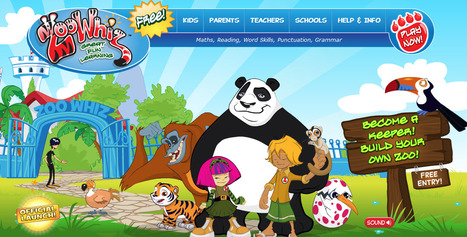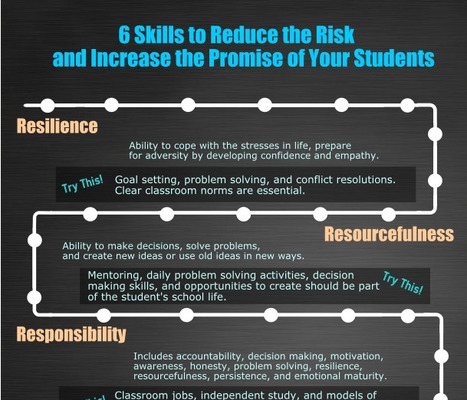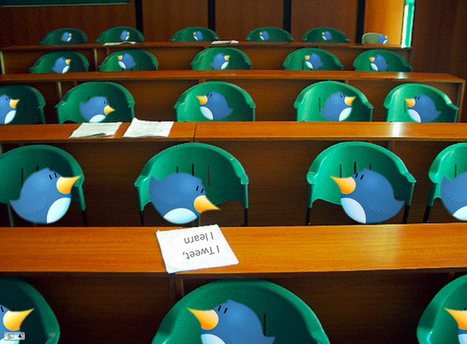Different students have different ways of learning, and this is absolutely true for literacy. Jules Daulby, whose wheelhouse includes SEN and English teaching, discusses how a certain amount of pupils are best learning with their ears...
Get Started for FREE
Sign up with Facebook Sign up with X
I don't have a Facebook or a X account
 Your new post is loading... Your new post is loading...
 Your new post is loading... Your new post is loading...
|
Madison Totushek's curator insight,
August 27, 2015 5:08 PM
I found this article to be interesting because of how society currently views teenagers using social media. One could think that it is a distraction of getting school work done, but this study has proven that assumption to be wrong... in a way. I personally believe that social media can be distracting if we are laying in bed scrolling through our endless twitter or instagram feed instead of doing homework. This study has shown that if people are using social media in an academic context, then it can actually be somewhat beneficial. The group that was using twitter actually showed more engagement in the subject as well as a .5 increase in their GPA.
Sylvia Sanchez's curator insight,
February 8, 2016 5:31 PM
This article talks about how tweeting class discussion help students become successful. There has been studies on students and how using social media has help the students more engaged towards the class. This article is more towards teachers to help their students be more successful in their class. It also helps students be more engaged in what is going on in their classrooms.
Kelly O'Hara's curator insight,
February 14, 2016 7:07 PM
My opinion of this article is split in half; I don’t like incorporating technology into something like a homework assignment, as technology is already a huge enough deal in society today, but because everyone in my generation is so obsessed with technology, and social media like instagram and twitter, if someone provided a way to keep their students more engaged in the class through a medium more age appropriate, and it worked, then that’s pretty genius. Being eighteen, all my friends have instagram, twitter, tumblr and snapchat. All the time, my friends pressure me into making an insta profile, as I only have a snapchat, which is enough social media for my taste. I’m obviously not the only teenager with a dislike for social media, but it’s hard to avoid. There are so many people wrapped up into it, that it becomes something they couldn’t bare to live without. And because doing homework isn’t exactly the most exciting and fun thing to do, incorporating social media into it makes it seem more entertaining and therefore of course more people are going to become engaged. So overall, even though I’d personally be more annoyed, I think the idea of incorporating twitter in the classroom was a good way to keep the students of this generation engaged. |

















This post begins:
"In order to be an effective reader, two skills are required:
The post also provides access to an interview with Dr. Keith Stanovich who "argues that reading improves ‘crystallized intelligence’ and compares children who do not learn to read with those who do, by using ‘the Matthew Effect’ analogy."
The question remains, how do we help students whom do not read well, who have difficulty decoding text? We need to seriously consider the options, which include aural text (as in text that is read to students).
This issue is close to my heart. We want our students to be successful, yet we do not provide tools that are readily available to all who would benefit from them. This post looks at resources that are available in England for struggling readers. I will add a number of resources that are available in the US, and others may add resources for their countries in the comment section.
The question that each of us must answer is should we advocate for our students who are struggling with their reading skills to be able to use TTS (text-to-speech) programs that provide them with the ability to listen to the text and understand the text, without necessarily relying on their decoding skills? Do we give them the opportunity to level the playing field? By providing students with access to text that meets their learning style, we have given them the opportunity to be successful.
Today there are many free (or low cost) tools available that allow students to have text read to them. In the US two key players that help provide text to students (think books) with diagnosed reading disabilities are Bookshare, which provides free access to many books as well as TTS software and Learning Ally, which has many resources for students with dyslexia but may also require a membership fee. Additional sites to check out are Natural Voice Reader, which will read digitized text directly from a website and Rewordify, which will simplify the text.
Do you know free (or low cost) tools that help struggling readers? Please share them in the comment section.